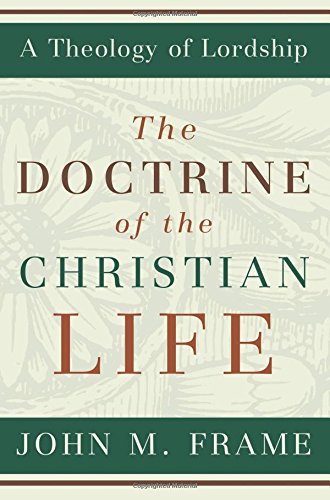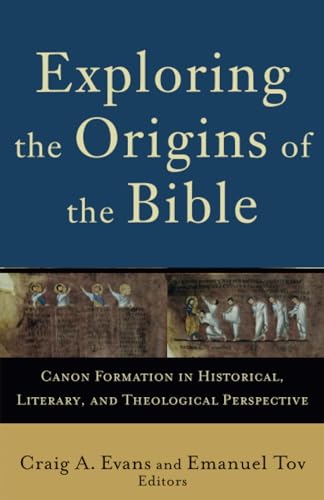The Doctrine of the Christian Life
Written by John Frame Reviewed By Kenneth MagnusonJohn Frame is Professor of Systematic Theology and Philosophy at Reformed Theological Seminary in Orlando, Florida. The present volume is the third in his Lordship series, following The Doctrine of the Knowledge of God (1987) and The Doctrine of God (2002). A final volume is projected, The Doctrine of the Word of God. Thus this book is important as part of a substantial work of systematic theology by an influential and prolific Reformed theologian.
Frame first introduces the subject of ethics and surveys the field of non-Christian ethics. Then he discusses methodological issues for Christian ethics, engaging with non-Christian ethics and establishing the context for the discussion of ethical issues that follows. A full twenty-one chapters (almost 400 pages) are given to methodological issues. This is a nice contrast to books that only deal with contemporary issues, and there is plenty of application even here. Yet for readers who might be put off, it is possible to jump ahead without serious disconnect. The heart of the book follows, in which Frame discusses a biblical perspective on most significant ethical issues, covering twenty-three chapters and nearly 500 pages. After that he offers a nice treatment of Christ and culture and a final chapter dealing with personal spiritual maturity. The book concludes with twelve appendices consisting of previous book reviews and writings on various ethical matters.
The main section on ethical issues is structured by the Ten Commandments, in dialogue with the Westminster Confession of Faith. This is a fairly traditional Reformed exposition of the Decalogue, but with fresh insight. He examines the narrow and broad meanings of each command, with their application to all areas of life, including worship, rest, work, authority, life and death, marriage and sex, economics, communication and character. His exposition and application will be a valuable resource for those teaching or preaching on the Ten Commandments.
Consider the sixth commandment as an example of Frame’s discussion. Its narrow meaning is a prohibition of all homicide unauthorized by God. It does not preclude all killing, for it is consistent with justified cases of capital punishment, war, and so on. It applies to cases such as murder, euthanasia, abortion, and suicide. More broadly, it includes negligent homicide and reckless disregard for human life (as in drunk driving, and perhaps the abuse of alcohol, tobacco, drugs, or even unhealthy eating!). Indeed, it penetrates further, as Jesus indicates, to condemn hatred in the heart from which violence arises, and speech that provokes violence. It also implies a positive mandate to protect and preserve life and ultimately the demand to love others as oneself.
This is a book well worth reading. It is impressive for its breadth as well as its depth and illuminating discussion of many of the topics considered. It is a nice balance of traditional Christian teaching with some careful nuances.
In a book of this size I was not surprised to find points of disagreement. At times they were substantial, such as when Frame suggests that there is no clear biblical basis by which to reject a number of dubious actions made possible by modern technology, including genetic engineering “to improve certain kinds of intelligence” (p. 790). I agree with Frame that some are too quick to reject technology for fear of playing God, but surely we must discern limits to our self-making. Either he has not considered some of the serious concerns, or he simply considers them not to be ultimate. Early discussions of this issue by Paul Ramsey and Oliver O’Donovan, as well as Karl Rahner, demonstrate sound biblical and theological reasons for restraint here. The problem is not Frame’s methodology, grounded in sola Scriptura. That is, he is not saying that genetic engineering is unproblematic simply because the Bible does not explicitly condemn it. Indeed, when he asserts that Scripture “contains all the divine words needed for any aspect of human life” (p. 156), he includes the application of biblical principles to new situations. In my view, the problem is that he has failed to apply Scripture appropriately (or with his usual wisdom) in this case.
Concerning methodology, a book on the Christian life organized around the Ten Commandments might put off some readers, such as those with an aversion to an ethics of command. Frame accepts that there are other valid ways to organize Christian ethics, but his method serves his purposes well, covering a wide variety of issues while indicating primary moral concerns of the Bible. Indeed, many readers will gain an increased appreciation for the richness of the Ten Commandments, how they shape and relate to biblical ethics in general, and how adaptable and applicable they are to contemporary issues.
Others will have more foundational theological reasons to challenge Frame’s basic orientation to Christianethics, which presumes a strong continuity between the Old and New Testaments, law and gospel, etc. Even if one appreciates a basic unity, it is valid to ask whether Frame’s account adequately presents the significance for Christian ethics of the gospel and its transforming power. An expansion of his last chapter, “Growing in Grace,” might remedy this, as it examines sanctification, grace, the resurrection, union with Christ, the Holy Spirit, and other themes that are central concerns of the NT and critical for Christian ethics.
Kenneth Magnuson
Southern Baptist Theological Seminary
Louisville, Kentucky, USA
Other Articles in this Issue
We begin with a question of translation. Many translations place a period after the word “conviction” in 1 Thess 1:5: “in power and in the Holy Spirit and with full conviction...
The Inexhaustible Fountain of All Good Things: Union with Christ in Calvin on Ephesians
by Lee GatissJuly 10, 2009 was the 500th birthday of the acclaimed French Reformer John Calvin...
The name of Martin Luther is perpetually linked to the doctrine of justification by faith alone...
Of the many questions currently surrounding the discussion about justification, the relationship between justification and spiritual fruit merits attention...
Every year a few students ask me my thoughts about whether they should pursue doctoral studies and I respond with what has come to be known as ‘The Speech...






